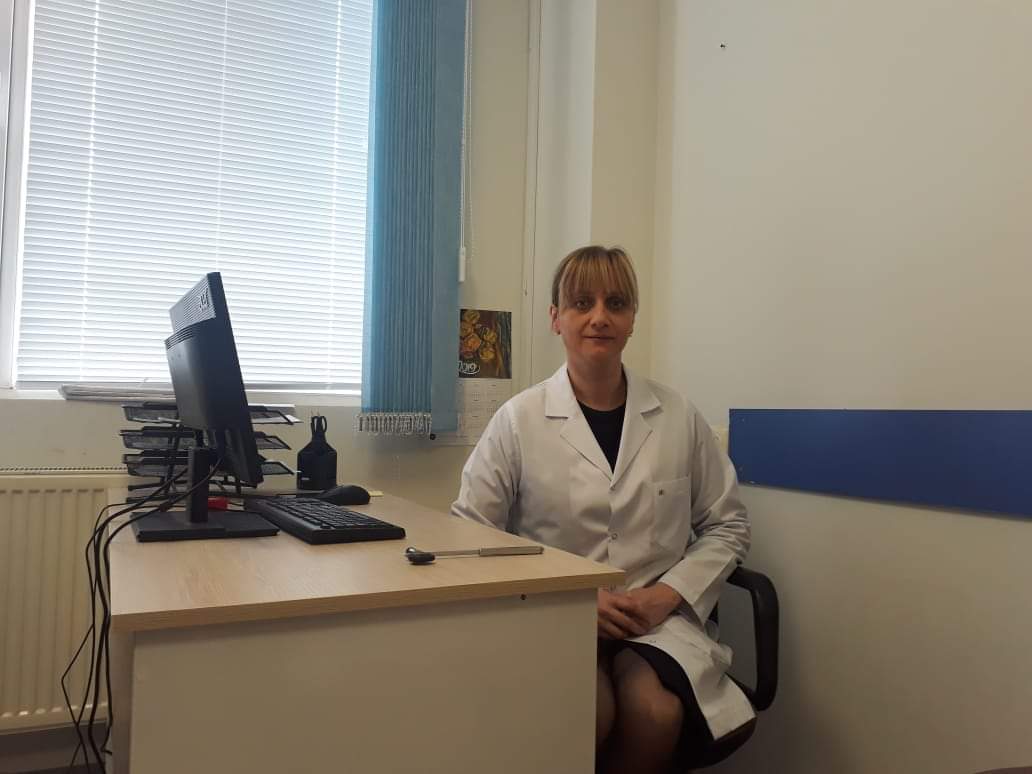“There is no stroke rehabilitation center in Kutaisi, Georgia, and after their hospital treatment, patients are discharged to go home. Unfortunately, patients’ carers do not have enough information on how to take care of them once their loved ones are back home. Due to swallowing problems, many of stroke survivors return to the hospital very soon after their discharge, this time not because of stroke, but because of aspiration pneumonia- a type of lung infection that is due to a relatively large amount of material from the stomach or mouth entering the lungs” says Tamar Janelidze, MD, neurologist, co-founder and board member of Georgian stroke support organization, Medical Foundation Mkurnali.
SAFE: What is one issue related to the life after stroke in your country that you think needs special attention?
TJ: In Georgia, there is an observed growth trend in cerebrovascular diseases. For last years, at the national health sector level, special attention is paid to acute strokes. In general, stroke is one of the main causes of disablement of the population of Georgia. In particular, most of patients that survived stroke are disabled, and 30-40% of them needed permanent care. Because of a deficiency in rehabilitation services in Georgia, no correction of neurological impairment can be made completely for stroke patients that reduces the quality of life. In response to the urgency of this disease, it is very important to study the methods for fighting this disease and for the management of its complications, as well as for its proper diagnosis.
In Georgia, at our hospital, at the premises of the neurology department, there have been established the stroke management units, the so-called stroke units, which allow not only for effective treatment of stroke patients, but also for assessing the complications and possible risks associated with stroke. 65% of patient had dysphagia, which evolves as a result of infringement of brain blood circulation, and appears as inhibition of swallowing reflex, or as its complete elimination.
SAFE: What would be the solution, i.e. what is your organisation’s position regarding this issue?
TJ: There is the risk of an aspiration of foods in the airway that consequently may lead to aspiration pneumonia. Our organization contributes to the introduction of dysphagia screening in the neurology department, which include the studies were actively started for the detection of dysphagia. First, swallowing reflex is checked and lingual condition is assessed in all patients, as well as there is differentiated whether dysphagia is a neurological complication or not. Then the studies are carried out through video-photofluorography roentgenoscopy. Patient swallows the contrast substances of different consistencies, and radiologist assesses radioscopically the swallowing process. Also, in some cases, of high importance is to assess the pharynx condition, for which we apply to an endoscopy.
After the mentioned examination, an attending physician and radiologist make decision on how the dietary regime of patient should be carried out. Of all 120 examined patients, dysphagia was detected in 85, and an appropriate examination regime and treatment were chosen for them, and in some of them the need of gastrostomy was identified. Analysis of latest data has shown that the problem of proper diagnosis of dysphagia allows for reducing the complications, even such as aspiration pneumonia that in turn is the most dangerous complication in terms of mortality.
Thus, proper diagnosis is a guarantee of preventing possible disablement and anticipated mortality.
SAFE: Please tell us more about your organisation.
TJ: Our organization participates in s patient’s educational program not only for stroke patients. We also have relations with government of Kutaisi and also Kutaisi University and try together to make our patients’ lives better.





